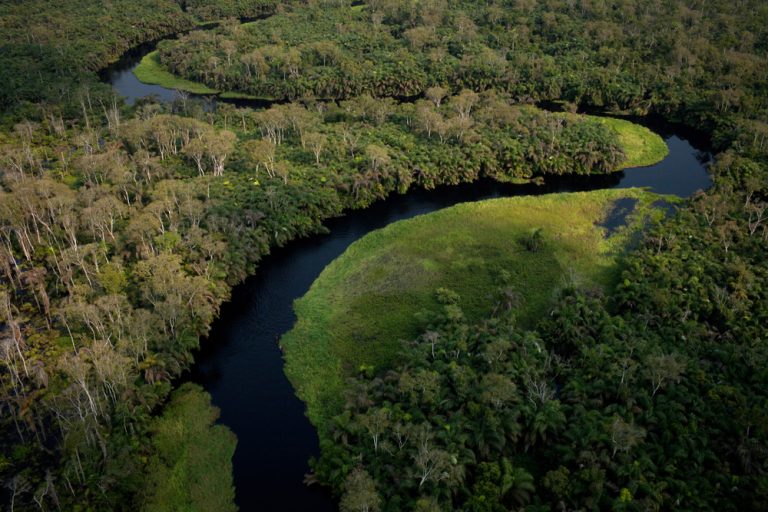The Canadian mining monopolist Ivanhoe Mines faces allegations of violating human rights in the Democratic Republic of the Congo, according to a September 2023 report published by Amnesty International. During the development of the Kakula copper mine in 2017, Ivanhoe is alleged to have forcibly evicted hundreds of people to clear room for the mine.
While the company did make promises to build new homes for the evicted families, the report reveals that the company's promises were not met. The homes constructed were found to be uninhabitable and dangerous, lacking basic amenities such as running water, electricity, and proper sewage systems. With the global demand for cobalt and copper rising, multinational mining companies are expanding their devastating impact in the area.
Coined the blood diamonds of batteries, cobalt and copper are essential to produce lithium-ion batteries, which are needed for rechargeable batteries used in cellphones, laptops and electric cars. The minerals are seen as essential for future clean energy projects and have brought an influx of multinational mining companies to the D.R.C. from China and Western nations like Canada. But despite the value of these minerals, the people of the D.R.C. have seen little of the benefit.
Beyond forced evictions, the workers in the mines are forced to work in dangerous conditions, often with little to no safety equipment. Cobalt, for example, is extracted through hazardous methods where workers are exposed to the cancerous heavy metal, which can harm their heart, lungs, eyes, and skin.

Researcher Siddharth Kara, from the University of Nottinhgam, found that approximately 2,000 workers lose their lives annually in cobalt mining accidents in the D.R.C., many of them children. The latest research by the International Labour Organization and UNICEF show that there are an estimated 40,000 children working in D.R.C. mines.
Beyond human rights abuses, mining activities in the D.R.C. have also imposed negative impacts on communities near the mines. Lubumbashi is the second-largest city in the D.R.C, and home to some of the country's largest mining operations. Being so close to the mines, the nearby communities are dealing first-hand with the fallout from open pit mining.
Pierre Makolo Kasongo is a researcher studying the return of biodiversity in replanted mining sites at the Lubumbashi University. He explained to North Star that mine waste runoff is a major issue. He says that after the arrival of mines, “the soil became acid and the countryside completely changed." The mining waste that gets dumped into the rivers contaminates the waterways, land, and wildlife. “It affects everything in the area." He adds that mine runoff seeps into the ground and leads to an increase of acidity levels into the soil, which harms crops and can eventually lead to desertification.
The D.R.C. has an important problem relating to species being threatened and already having limited habitat, according to Makolo Kasongo. "There is a fish that is only in one river system here. So mining activities threaten an entire species." People rely on the rivers for the fish and clean water. The D.R.C. is home to many wetlands that purify the water for the ecosystem, benefiting both animals and humans, but the current mining system threatens all of this.
Even when the mines end their deadly operations, the environmental effects remain — causing long-term issues for communities. The land is left depleted, and people can no longer survive as prior to the mining. In restoring the land that was used for mining, communities can see some positives for themselves and the natural environment.

Pierre Makolo Kasongo works in a recently replanted area, where families plant corn and acacia trees every year with the ultimate aim of reforestation. After a few years, these trees can then be used to produce charcoal, providing the fuel needed for their homes. Pierre explains that another benefit of this initiative is key species of pollinators coming back to the region.
This reforestation effort stands in contrast to the situation surrounding copper and cobalt in the D.R.C. While these resources are crucial for advancing clean technology, the local people are seeing little benefit from the increased demand. The promises of economic development and improved living conditions for the local communities have failed to materialize. Instead, foreign mining companies, like Ivanhoe Mines, are perpetuating imperialism and exploiting the country's resources without providing adequate welfare or compensation to the workers and people of the D.R.C.
- Ukraine: Russia and NATO both to blame?
- Canada’s Mining Investments Linked to Human Rights Abuses in Philippines
- Canadian Arms Industry Convention Contradicts the Country’s Peaceful Image
- How Canadian Arms Exports are Fueling Conflicts and Endangering Civilians
- Trudeau Disregards Clear Evidence of Mining Giants’ Abuse of Local Communities
- National strikes force Canadian mine closure in Panama
- Are Canadian policies really helping the Ukrainian people?
- “It affects everything in the area”
- Canadian Government supports human rights abuses in Peru
- Protesters Disrupt World’s Largest Mining Convention in Toronto


